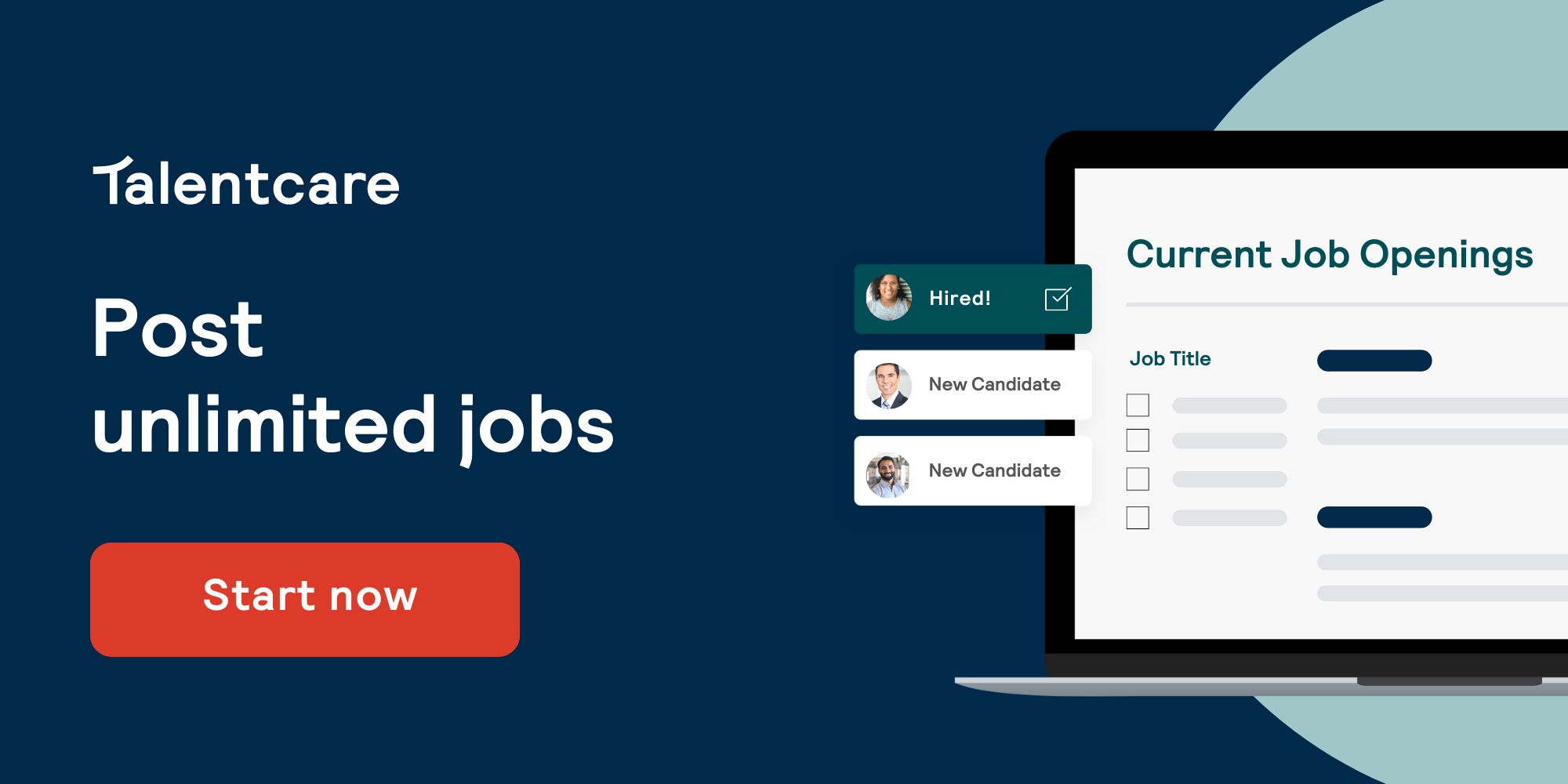Small businesses aren’t always equipped with dedicated HR or recruiting teams, which means that if you’re reading this and you’re in HR for a SMB, you’re probably wearing at least half a dozen hats. It’s easier for smaller businesses though, right? Hard nope.
Small businesses are stressed out too – but they have some advantages that large multinational companies don’t. It can take a large organization weeks to go through many channels and layers of approval before a job description can be changed or a job posting can be made public. If you’re recruiting for a large company and need some face time with your CEO, you make an appointment. And in that time, a qualified candidate probably already found a job listing that matches their skills and experiences. Small businesses can do all of that TODAY. You can just swing by your CEO’s office on your way to change a job description before you upload a new job post to your website.
What Small Businesses Can Do to Improve Hiring Today
1. Have a dedicated career site and/or landing page. By “dedicated,” we mean that it is part of your company website index and does not live on your site as a careers button that takes candidates to your ATS. Why is this important? Google will not index what lies beneath your site. If you have job postings on your career website (and it’s fine to link there to your application), search engines like Google will find your job postings and index them (for free!) which makes it easier for candidates to find your company’s job openings when they search online. “Hey Siri, find jobs near me” - and just like that, your jobs are found online!

2. Optimize your job descriptions. While these seem like small things, changes like putting “job” in the title of your posting (for example, put “job” in the description “Cashier Job”) can help job search aggregators find them because it mirrors what people search for when they’re on the job hunt. Another: The text on your call-to-action (CTA) buttons matters. If “learn more” is your default button text, it’s a passive request. “Apply now” is a stronger CTA and makes the next action clear. It’s fine to include “learn more” links to keep candidates on your site to see more information about your company, but “apply now” or “why work for us?” are more compelling.
3. Manage your reputation online. Claim your Indeed or Glassdoor profile if your company has yet to do so and start responding to questions and reviews online. Note that we’re suggesting responding to reviews, not arguing with bad reviews. Why? Because that’s just not a good look, and statistically, 76% of Glassdoor users agree their perception of a company improves after seeing an employer respond to a review, even if those reviews are negative. A positive response to a negative review can go a long way. So, bite your tongue, admit that you’re in the wrong, even if you’re not, and kill them with kindness! (Source: Glassdoor.co.uk U.K. Site Survey, December 2019.)
 Related Article: 7 Sites to Monitor Your Employer Reputation
Related Article: 7 Sites to Monitor Your Employer Reputation
4. Be nimble. One of the best things about recruiting for a small business is that you’re still small enough to move quickly. In fact, you and your team might have all the autonomy that larger companies don’t and you can use this to your advantage by reaching out to applicants within minutes with an interview scheduling link. Even better: Responses like these can be automated with your ATS, which allows you to focus on high-touch tasks (like attending to employees because you’re likely serving as both in-house recruiter and HR department).
5. Measure results. Identify and centralize the metrics you need to know in order to make better hires faster. Small businesses often use what they have to work with, which means some of the data you need is in Google Analytics, some is in your ATS, and some of it is in someone’s brain and you have to ask them. The best metrics are the ones that help you improve and scale what’s working and change what isn’t. For example, if you had access to a report that defined when candidates are declining job offers for reasons unrelated to your recruiting efforts (life change, change of mind, comeback offer from current employer) and those that are in your control (compensation, schedule, red flags), it allows you to hyperfocus on the latter.
Talentcare works with companies of all sizes and devotes as much time to small businesses as larger organizations. Also? Talentcare’s online ATS system is customizable, easy to use, and offers support to help you do all of the above. Drop us a line or slide into our DMs.
